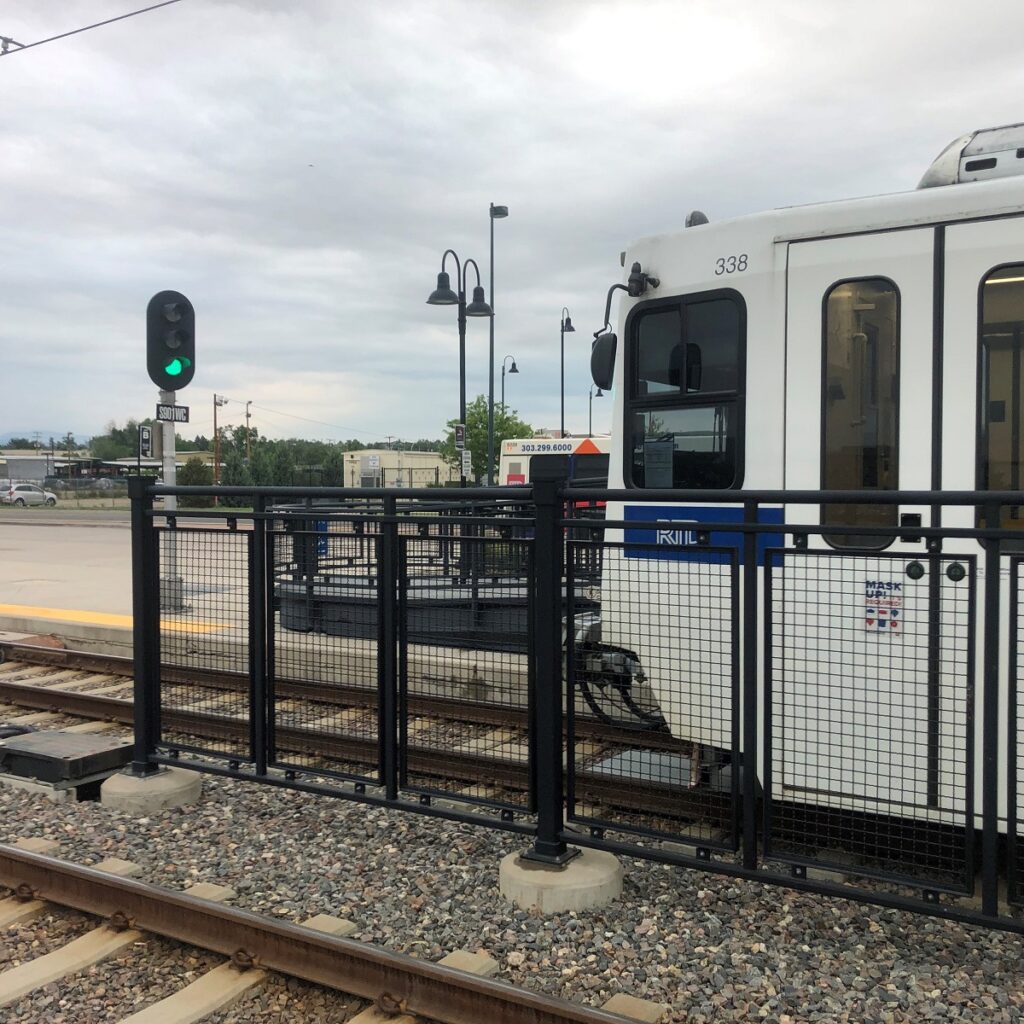GDT > RTD Ridership Growth Plan > RTD Basics
Report issued June 2022.
Introduction
On May 26th, 2022, Governor Jared Polis signed Senate Bill 180 into law which commits $68M over the next four years to fund “programs which reduce ground level ozone through increased use of transit”. Of this funding, $11 million is earmarked for the Regional Transportation District (RTD) to provide free bus and rail transit services in August 2022 and August 2023 for the Denver Metro area.
RTD Fare Free August
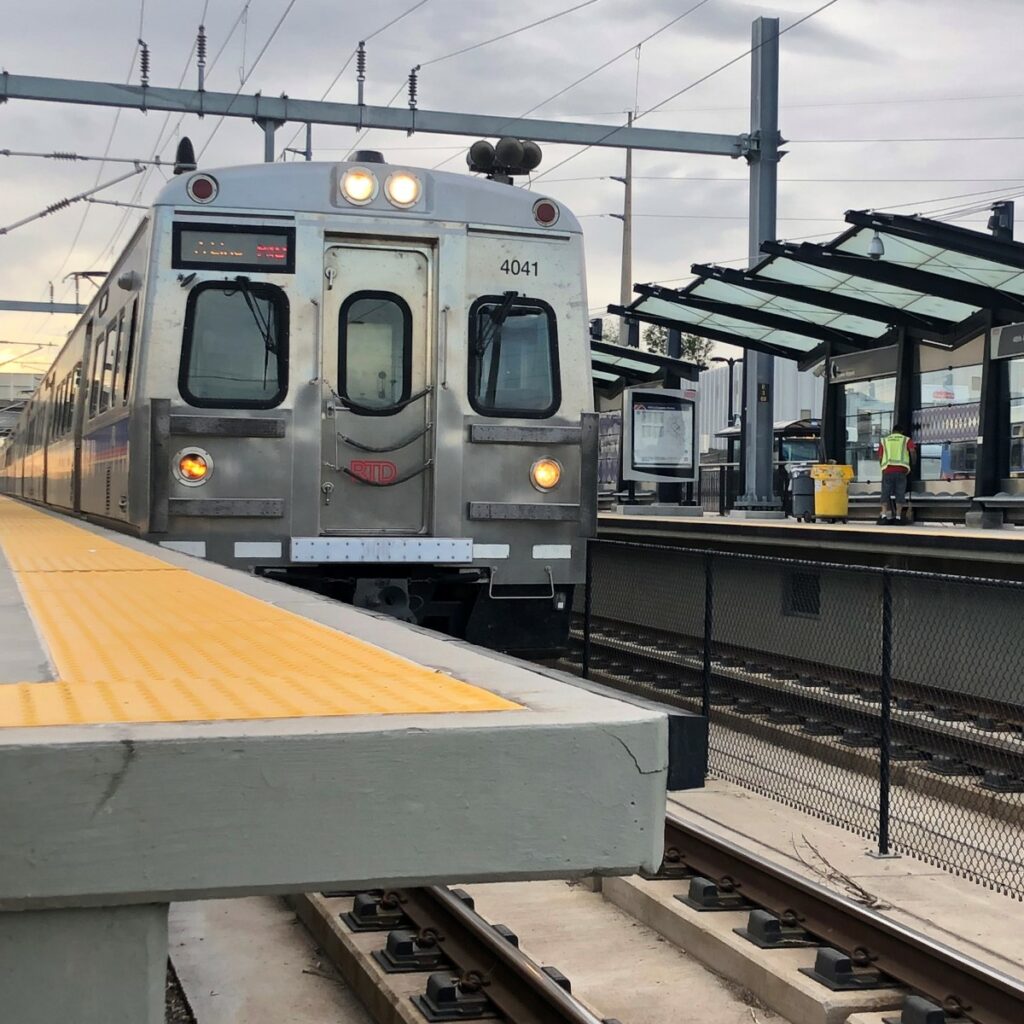
Greater Denver Transit has studied the details of the bill and concluded that $11 million for the next two years is anticipated to cover the shortfall in fares collected during those two months. Therefore, we can endorse the financial viability of the plan.
While there is some debate on whether fare free transit actually results in a significant reduction in ozone emissions and other related environmental benefits, Greater Denver Transit broadly welcomes the bill as it provides a unique opportunity for RTD to grow the number of people using transit by taking away one of the perceived barriers to usage – fares. However, there is also risk in (re-)introducing the RTD system to users in its current form.
Current Situation
RTD is in a crisis at present, following years of increasing costs (including debt taken on to build the first tranche of FasTracks lines) and declining revenue having put the agency’s finances in a precarious state. The COVID-19 pandemic and related labor shortages have resulted in many services being severely cut back, and those that remain are often subject to frequent cancellations due to insufficient bus and train operator staffing . In addition, the cuts in security and lack of riders downtown have resulted in the RTD-managed areas of Denver Union Station (DUS), ‘the jewel in the crown’, becoming occupied by large numbers of non-travelers that include illicit drug users, creating a perceptibly unsafe environment that even RTD’s own staff are uncomfortable working in.
To RTD’s credit, the leadership are aware of the situation and have begun to respond, with one of the main items being a ‘Restoring DUS’ initiative, where between $10M-$15M is being spent on renovating the station for the benefit of transit riders and employees alike. Likewise, a new three-year collective bargaining agreement (CBA), signed in March 2022, is being touted as the solution to RTD’s workforce woes. That said, it should not take crises like these, which harm the existing ridership and deter new people from using transit, to make RTD’s leadership take decisive action and allocate significant amounts of resources to address system-breaking challenges. It is vital to stay on top of the “little” issues and ultimately address them before they develop into major problems.
The Basics of Transit
Greater Denver Transit understands that all the issues facing RTD cannot be fixed by August 1st, when it is hoped that significant numbers of Denver Metro residents are tempted to try out RTD’s services. This report aims to focus on some basic items that should be possible to set in motion before that time. Thus, major service changes are unlikely to be feasible before the free fare month begins.
Our main advocacy for this time is that RTD doubles down and refocuses on the fundamental basics of providing transit between now and through August. Transit trips must be safe, reliable, punctual, clean, and must be framed by good wayfinding information provision (e.g., updated schedules) and customer service. These basics should be promoted from the very top throughout the agency right down to the lowest ranking employees. Staff at all levels must be empowered to take action to correct situations where the basics are not being carried out as things that may seem small and inconsequential often deter riders.
Safety
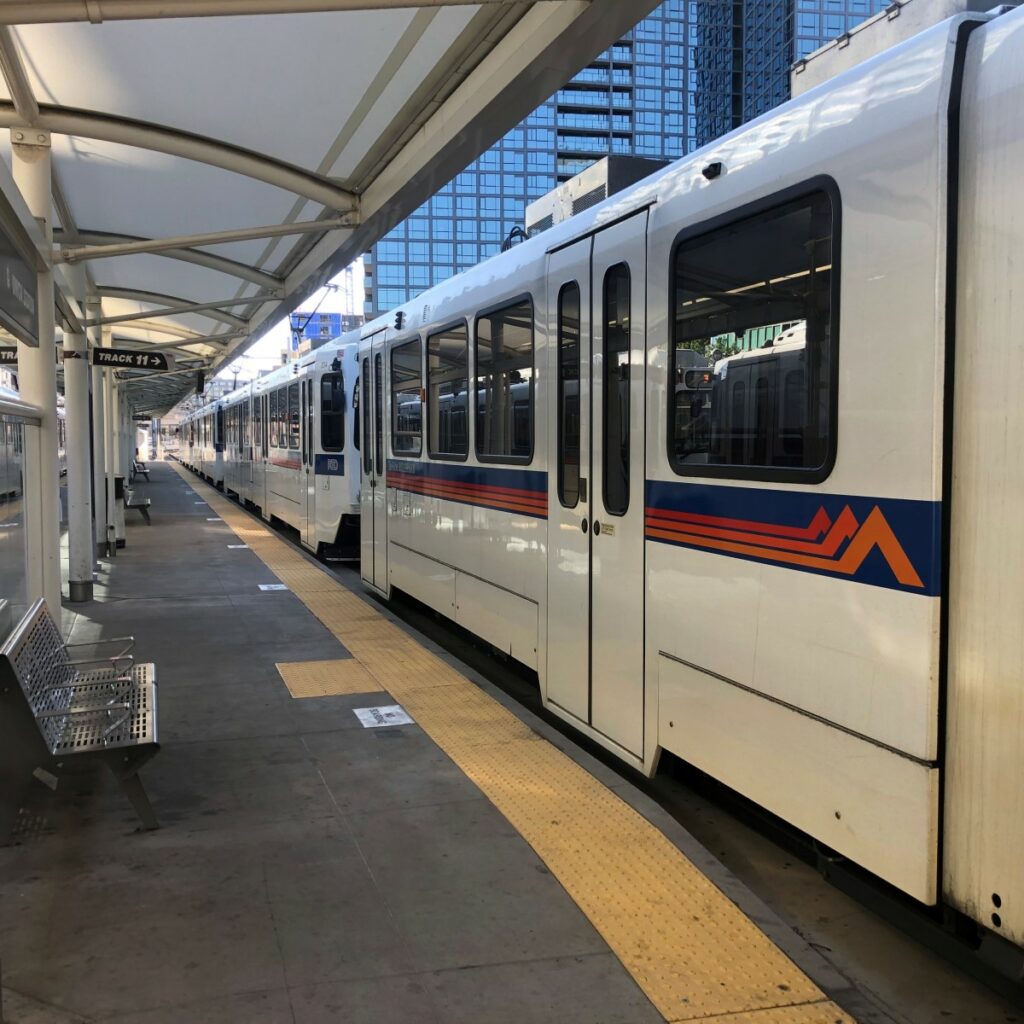
The topic of safety needs no introduction; a transit system that is perceived as unsafe will have a section of its potential rider market simply not even willing to consider using it. A serious crime committed on a transit system can result in weeks, months or even years of adverse media coverage, which can undo a large amount of positive public relations work. RTD should look to:
- Maintain a visible security presence on as much of the system as possible. Officers should patrol every major station / stop and become a frequent sight on light rail trains again. They should not be seen loitering in groups on the edges of public spaces.
- Deal with all instances of anti-social behavior (drug use, loud music etc.) in a firm, fair, and compassionate manner.
- As appropriate, cooperate as quickly as possible with any criminal investigations, whether it be on RTD property or not. Fulfill requests for access to closed camera footage in a quick and efficient manner.
Reliability
Reliability is defined as running the bus and train services according to their schedule. The downsides to frequently canceled services are currently being felt across the system and the result is that transit riders will eventually choose another mode of transportation, most likely the private car. RTD should look to, whenever possible given staffing issues:
- Run every advertised bus and train service.
- Never cancel two consecutive services on a route.
- Develop contingency plans for managers and other suitably trained staff to operate services before canceling them.
- Provide advanced notice of all cancellations and ensure that the alert is fed through both RTD and public (Google/Transit App) information sources.
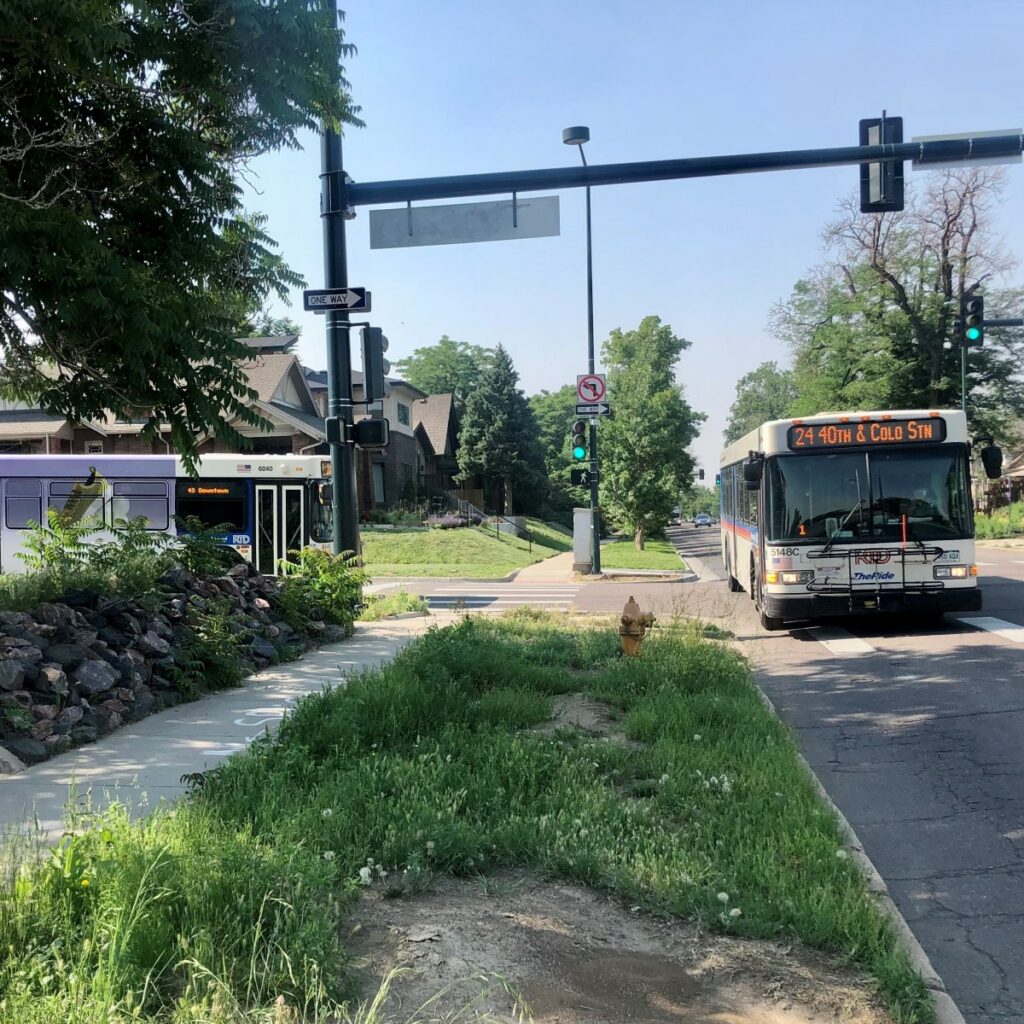
Punctuality
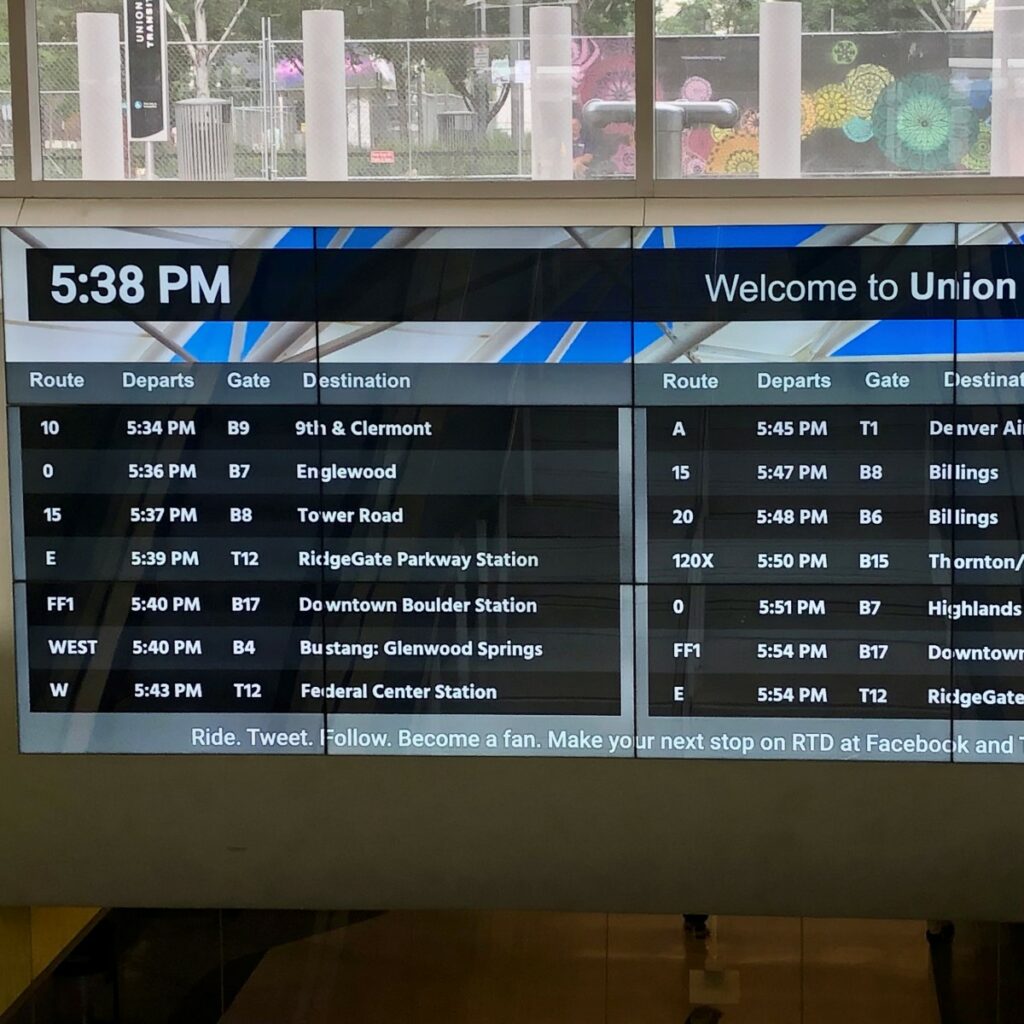
Punctual buses and trains make the system usable and are extremely important to riders whose journeys depend on a transfer. RTD should look to:
- Ensure buses and trains leave their starting stop on time.
- Reaffirm to all operators that a few seconds unnecessarily spent at a stop can result in a few minutes delay at the end of a route and missed transfers.
- Have brand ambassador staff at busy stations (e.g. Union Station) able to assist riders with schedule, route and wayfinding information so they can be ready to board buses and trains promptly. Towards the end of the August free (‘zeroed out’) fares month, a specific focus needs to be made on educating new riders on how to purchase fares.
Cleanliness
A dirty bus or train that has been pressed into service leaves a terrible impression on riders, especially those that are occasional users of the system. At stations, waiting riders are seeing more trash which includes discarded needles and hygiene products sitting on the tracks. It has been reported to us that some riders perceive RTD as the dirtiest environment they will inhabit in their day, which contributed to their poor perception of RTD services. To remedy this, RTD should look to:
- Clean the interior of every bus and train in service daily to ensure a user-friendly experience
- Allow passengers to report dirty areas, spills and mess created during the day via an app and/or on social media with a cleaning team to be dispatched promptly and prioritize blood, vomit and other human fluids that most disturb other riders.
- RTD’s cleaning team should be dispatched with PPE equipped to handle more than just solid trash on the ground but also spilled food, drink, and other liquids to avoid further staining of vehicles and stations.
- A dirty bus or train that cannot be cleaned while in service should be swapped out as soon as practical.
- All train stations must be cleaned thoroughly every day with Union Station being cleaned twice a day: a full cleaning every morning before 6am followed by a spot cleaning in the mid-afternoon.
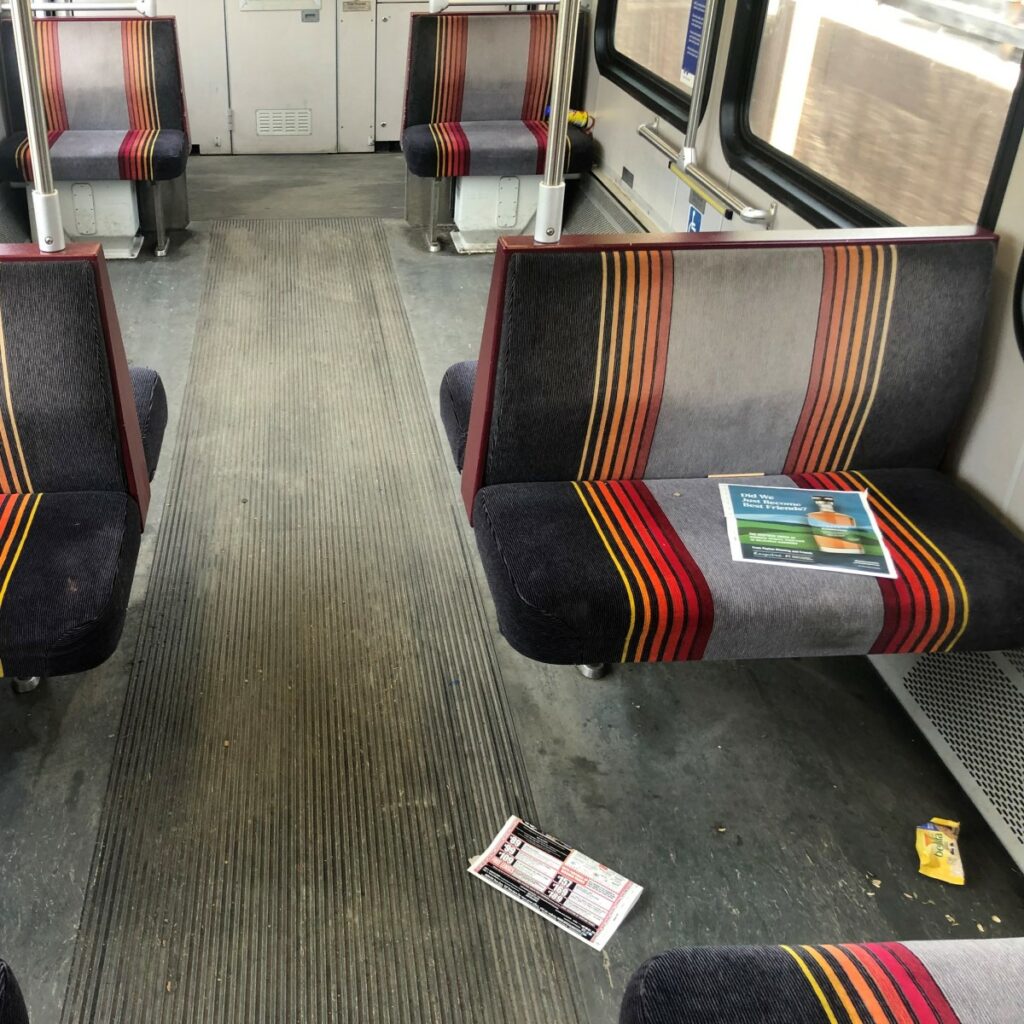
Information Provision
Accurate and timely information can prevent a bad transit experience and is especially important when buses and trains are delayed or canceled. In addition, good information can be a huge tool in attracting new riders by advertising when and where transit services operate. RTD should look to:
- Ensure every bus stop and rail station that has a place to display information has an up to date schedule / map poster.
- Create a new Twitter account called @RTDAlerts which will cover all rail and bus alerts instead of selectively reporting only some disruptions via RTD’s main Twitter profile.
- Simplify the Service Alert portal where riders can choose between email and/or text alerts specific to buses, trains, and individual stations. Subscription details should be prominently advertised at stations and on RTD’s website and social media.
- Refill paper schedule holders on buses and trains daily.
- Ensure all digital displays are working and convey accurate and up to date information. Respond quickly when instances of inaccurate information are reported.
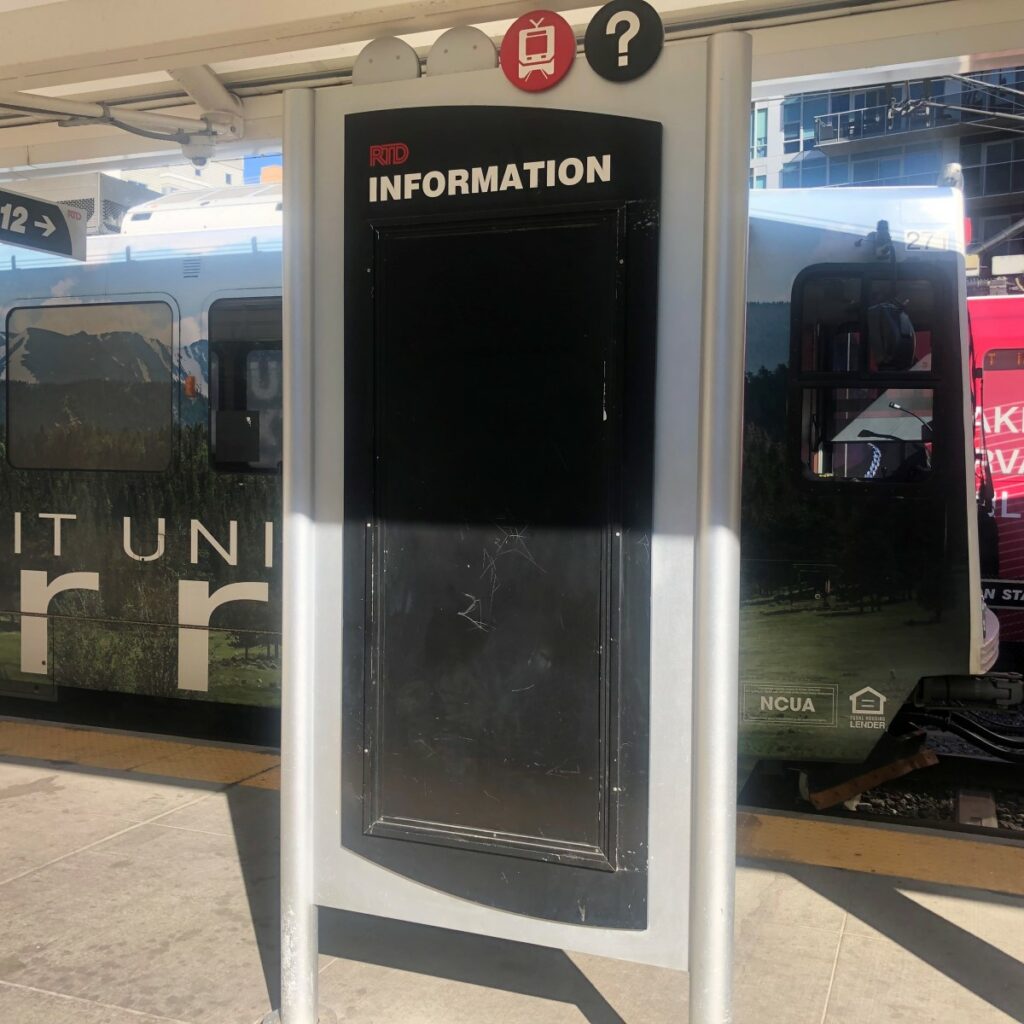
Customer Service
Good customer service is frequently under-appreciated, but bad customer service can leave a lasting mark in the minds of riders. RTD should look to:
- Remind staff to always be approachable. A smile or a greeting goes a long way.
- Train staff to offer alternative ways to assist the rider if they can’t fulfill a request
- If an incident happens, train staff to never neglect the rider’s needs. In an adverse situation riders will be looking to staff for guidance on what to do next.
Conclusion
Greater Denver Transit acknowledges that the ideas put forward in this report are seen as relatively straight-forward to implement in the run up to the August 2022 free fare month, where RTD will essentially be “on show” to new riders willing to try the system out.
We believe that by focusing on the six basics of Safety, Reliability, Punctuality, Cleanliness, Information Provision and Customer Service, RTD can start to send a message to the Metro Denver population that it is turning a corner after a difficult couple of years. We hope the agency and its hard-working staff are up to the challenge.
